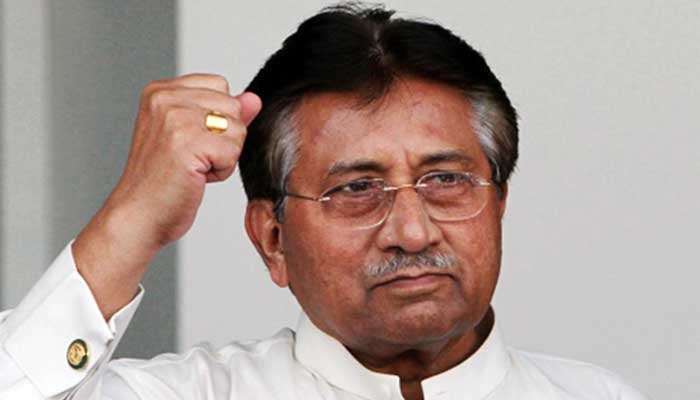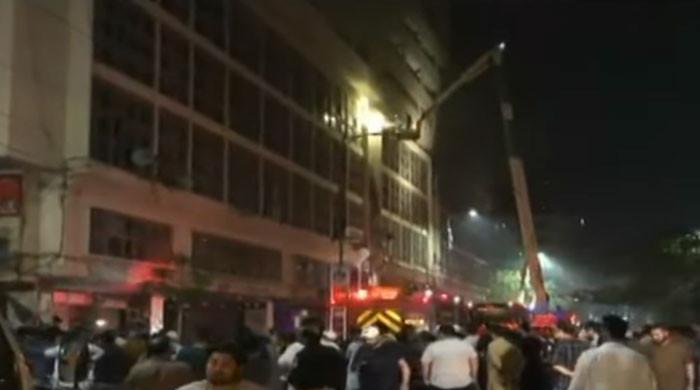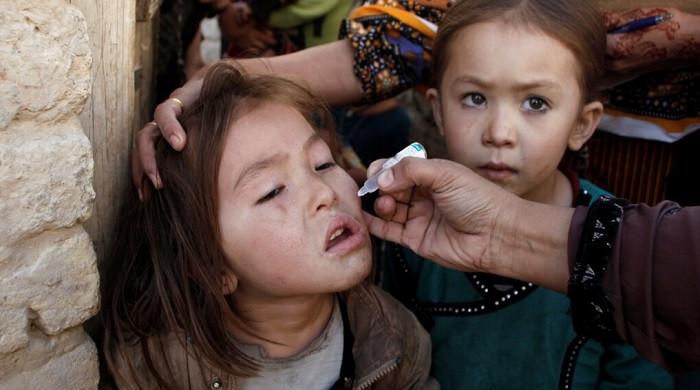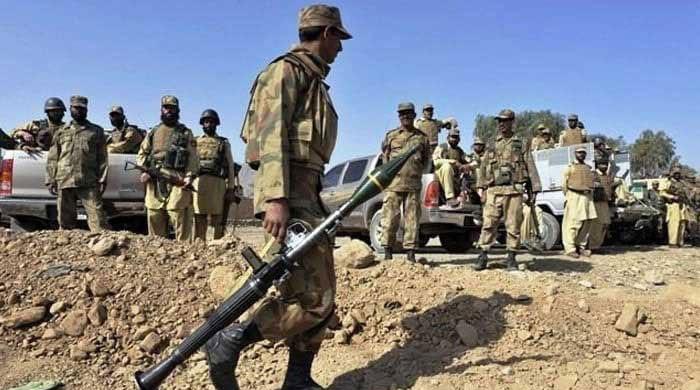Timeline of the high treason case against Pervez Musharraf
A special court sentenced Musharraf to death on Tuesday for imposing a state of emergency on November 03, 2007
December 17, 2019

Former president General (retired) Pervez Musharraf has been battling a slew of legal cases since he stepped down as the president of Pakistan in 2008. The cases are:
Bugti's killing
The 2006 killing in a military operation of Baloch politician Nawab Akbar Bugti. Ten years later, in 2016, an anti-terrorism court in Quetta acquitted Musharraf.
Benazir Bhutto's assassination
The 2007 assassination of former prime minister Benazir Bhutto. In 2017, an anti-terrorism court in Rawalpindi declared Musharraf a fugitive.
Putting 60-plus judges under house arrest
Musharraf's decision to fire and put under house arrest more than 60-plus judges after he imposed an emergency in the country in 2007.
Abdul Rasheed Ghazi's murder
A case against Musharraf is pending in the Islamabad High Court (IHC) in connection to the murder of cleric Abdul Rasheed Ghazi during the 2007 Lal Masjid operation. In 2016, Musharraf was declared a proclaimed offender in the case.
Of these four cases, the charge of high treason is the most serious, under which the former ruler could face death penalty or life in prison.
Here is the timeline of the how the case progressed since it began in 2013:
April 2013
A week after Musharraf returns to Pakistan, after a four year self-imposed exile, the president of the LHCBA Rawalpindi bench, Taufiq Asif, files a petition in the Supreme Court to initiate a treason case against the former ruler for suspending the constitution and imposing emergency.
June 2013
The same month, the Pakistan Muslim League-Nawaz government hurriedly files a petition in the court to try Musharraf for treason under Article 6 of the constitution. It further sets up a special investigation team to probe the charges against the former president.
November 2013
Pakistan’s Supreme Court orders the formation of a three-judge special court to prosecute former military ruler Pervez Musharraf.
December 2013
Musharraf is booked in the high treason case.
March 2014
The special court indicts the former military chief.
September 2014
The FIA-led special investigation team finds Musharraf guilty of suspending the constitution.
November 2015
The IHC orders the special court to re-investigate the case and record anew the statements of Musharraf, the former prime minister Shaukat Aziz, former law minister Zahid Hamid, and former chief justice SC Abdul Hameed Dogar.
March 2016
Musharraf's name is removed from the no-fly list and he is allowed to travel abroad for medical treatment. He has not returned to the country since.
May 2016
The court declares Musharraf a proclaimed offender and orders for his properties to be confiscated.
February 2016
The Supreme Court rules that Musharraf alone will be tried in the treason case, and not the others named, as the special court does not have the jurisdiction.
May 2017
Musharraf sends an application to the court agreeing to face the high treason charges against him but only under the military’s protection, and under the assurance that he would be given a safe passage to return to Dubai.
February 2018
After nine months, the special court reconvenes and begins to hear the case against Musharraf.
July 2018
Akram Sheikh steps down as the head of the prosecution team.
October 2019
Over a year later, the government denotifies the rest of the prosecution team in the treason case.
Same month, the court announces that it will be conducting day-to-day hearings of the case.
November 2019
A special court reserves its verdict. The judgement is to be announced on November 28.
Musharraf files a petition in the Lahore High Court (LHC) challenging the reserved verdict passed in absentia and the pleads for the suspension of the trial. He also questions the formation of a special court without the federal cabinet’s approval.
Separately, the PTI-led government files an application in the IHC seeking for the verdict to be postponed until a new prosecution team is appointed.
December 2019
In its hearing on December 5 the special court had said it will announce the verdict on December 17 even if arguments of both sides were not completed by then.
On December 17, the three member special bench sentenced the former military ruler to death.











